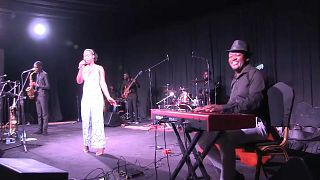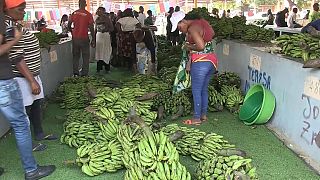Angola
Angola's national human rights strategy, the impact of the pandemic on the management of fundamental human rights, gender equality and elections were some of issues that dominated the annual meeting between the Angolan Ministry of Justice and the African Union Delegation.
On recent demonstrations and actions of the national police, the European Union ambassador in Angola,Jeannette Seppen, said that the pandemic generated a challenging situation.
Jeannette Seppen said that in fact covid-19 would have created pressure on some fundamental rights worldwide. But she urges a respect for freedoms.
At the end of the meeting, Angola's Minister of Justice and Human Rights, Francisco Queirós, also mentioned the last two demonstrations and what could be the basis for the clashes between protesters and the police.
"What hampered this dialogue between the population, the protesters and the government was the intervention of a harmful factor, a political factor. Because there were those who took advantage of this situation to make political claims of another nature that have nothing to do with social issues,"said Francisco Queirós, Minister of Justice and Human Rights.
This is the second meeting at the ministerial level, taking place under the agreement known as Joint Paths signed in 2012 between Angola and the European Union.''












01:26
Tens of thousands rally in New Zealand in support of Māori rights
Go to video
World's longest detained journalist wins rights prize
Go to video
Viral Facebook video poses threat to Nigeria’s LGBTQ+ community - Meta
00:59
DR Congo, Ethiopia, Kenya elected to Human Rights Council
Go to video
Biden postpones trip to Germany and Angola to monitor Hurricane Milton
01:45
Tunisians protest against President Kais Saied before October 6 election